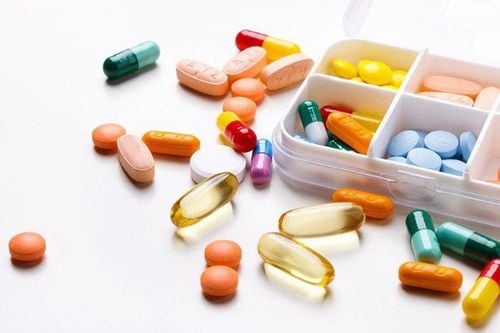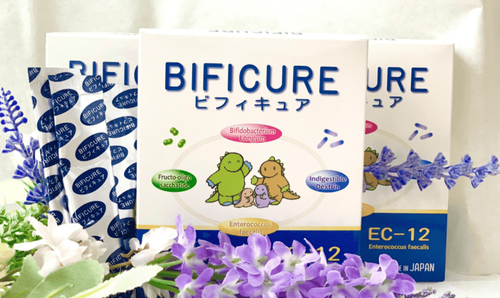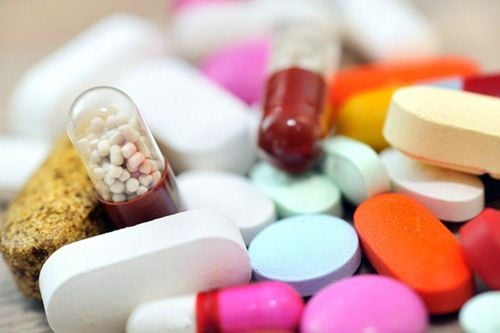This is an automatically translated article.
Enteric antibiotics for children are antibiotic active ingredients that can affect the bacteria in the digestive system. Children's intestinal antibiotics have the ability to kill or prevent bacteria from multiplying and developing, helping to treat and limit the harmful effects of these bacteria to the child's intestinal tract, reducing absorption and excretion disorders. secretion in the intestine.
1. When to use enteral antibiotics in children
According to the doctor's recommendation, children's intestinal antibiotics in particular or all antibiotics in general are only used in cases of real necessity and it is best to have a doctor's prescription. This helps limit the overuse of antibiotics indiscriminately, thereby preventing the ability of bacteria to become resistant to antibiotics.
Some cases need to use enteric antibiotics for children:
Intestinal infections have been diagnosed and confirmed by a doctor; Cholera bacterial infection; Typhoid disease ; Amoebic dysentery; Acute diarrhea lasting more than 3 days or diarrhea caused by Giardia Lamblia; Diarrhea with blood in the stool; Intestinal infections complicated by bacteremia with the following manifestations: high fever, chills, dehydration, abdominal distention, blood cultures found pathogenic bacteria Besides, in some cases, the use of the drug should not or be minimized. use of intestinal antibiotics in children :
Pseudomembranous colitis ; Intestinal dysbacteriosis; Intestinal infections caused by viral, fungal or parasitic infections (such as roundworms, whipworms, pinworms, flukes...)
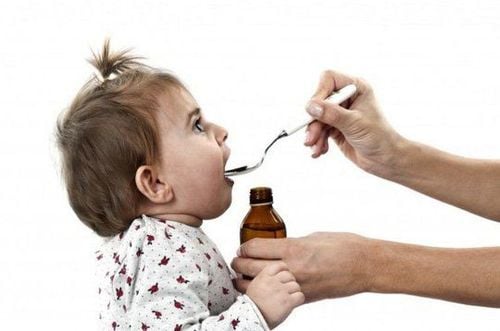
Thuốc kháng sinh đường ruột trẻ em chỉ sử dụng trong trường hợp thật sự cần thiết
2. The baby is anorexic after being sick due to the use of intestinal antibiotics for children
Under normal physiological conditions, the baby's intestinal tract always has a peaceful coexistence between beneficial bacteria and harmful bacteria to create a microbial balance (including 85% of beneficial bacteria). and 15% harmful bacteria) and maintain intestinal health.
Antibiotics are essentially bactericidal or bacteriostatic substances, each different type will have a different mechanism of action. When using antibiotics for children's intestinal tract, these active ingredients will destroy all bacteria with certain characteristics and do not distinguish between beneficial bacteria and harmful bacteria.
Therefore, when the beneficial bacteria are destroyed, it will lead to negative effects on the digestive process, reduce the ability to absorb nutrients, reduce immunity and lose intestinal stability. Since then, the baby is prone to digestive disorders with typical manifestations such as diarrhea, constipation, flatulence, abdominal distention, raw stool...
Final consequences of the use of intestinal antibiotics in children It is not reasonable that the child is anorexic after illness and increases the risk of malnutrition. Anorexia baby after prolonged illness leads to deficiency and imbalance of nutrients, becomes thinner, even loses weight, slows growth.
More specifically, these children are very susceptible to disease recurrence and stunting has a negative impact on physical and intellectual development in the future.
3. Some causes of anorexia in children after illness are not due to intestinal antibiotics for children
Normally, children usually return to a normal eating rhythm after about 1 week of recovery. Therefore, if it is determined that the child's anorexia after prolonged illness is not related to intestinal antibiotics for children, parents should learn the causes below to promptly overcome and effectively handle:
Parents for children to abstain too much: When the baby is sick, parents often have misconceptions, try to cut down on their child's diet such as not giving milk, the meal only includes white porridge with salt... The baby's body is already weak, becoming more and more exhausted, not having enough resistance to fight the disease. In addition, this condition is also the cause of children anorexia after illness.
Baby has not completely recovered from the disease: After getting sick, if the baby is still anorexic for a long time, it means that the child's body has not fully recovered. In this case, parents should take their children to medical facilities to be examined and treated by a doctor. Absolutely do not let this situation last for a long time because the effects on the baby will be very great, adversely affecting the development of the baby's height, weight and intelligence in the future.
Immune system has not fully recovered: After an illness, a baby's immune system often declines as well. At the same time, the body is still very tired, so the longer the baby is anorexic after being sick, the longer it will create a pathological spiral: the baby is tired, so not eating, not eating makes the baby's body more tired.
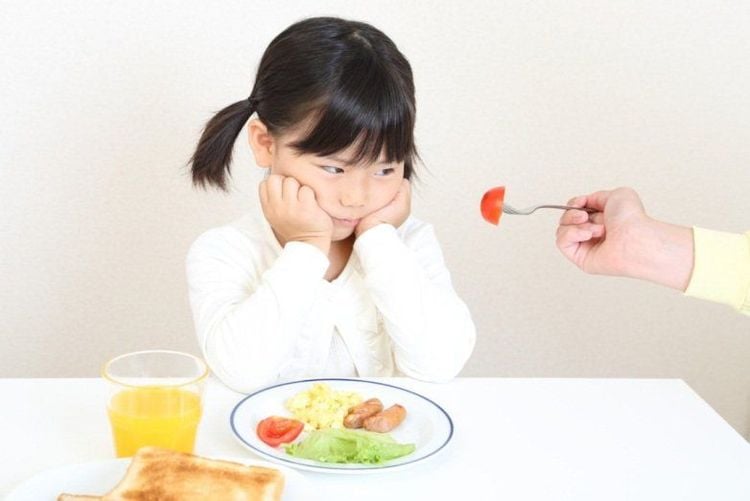
Cha mẹ cho con kiêng cữ quá mức là nguyên nhân làm trẻ biếng ăn sau ốm
4. Recovering the body after using intestinal antibiotics for children helps to improve anorexia
After the course of enteral antibiotic treatment for children, parents can consider feeding their children with natural bio-fermented products that help provide many beneficial bacteria for the body. process and choose safe foods... Add more foods rich in fiber after using intestinal antibiotics for children: fiber will create a source of nutrients for beneficial intestinal bacteria, increase favors the strong growth of beneficial bacteria, restoring the intestinal ecosystem. Parents can incorporate fiber-rich foods such as whole grains, peas, bananas, and broccoli during and after taking antibiotics. Some other foods also help stimulate the growth of beneficial bacteria such as: garlic, almonds, etc. should also be added to the child's diet. Foods to avoid when taking antibiotics are: foods containing antibiotics. rich in calcium, iron, acidic foods, overripe fruits... Supplementing with probiotics is the fastest and most effective way when children have digestive disorders after using intestinal antibiotics for children. In probiotics, there are full of necessary beneficial bacteria and soluble fiber, supplementing probiotics means directly adding a large amount of beneficial bacteria, filling the areas damaged by antibiotics. However, not all types of probiotics respond well and bring high efficiency. According to nutritionists, good probiotics need to meet four criteria: contain both probiotics and prebiotics, safely sourced yeast, modern production technology, and easy-to-drink taste for children.
The improvement of children's symptoms of anorexia after using antibiotics can take a long time, so it is recommended that parents be calm and persistent when supplementing with nutrients, even through eating or other foods. functional products. In particular, the use of functional foods should choose those of natural origin that are easily absorbed, do not allow children to use many types at the same time or continuously change the types of functional foods.
It is best when there is a situation of stunted children with anorexia, mothers should coordinate with a pediatrician to prepare a nutritious menu, enough zinc for the baby to help children develop comprehensively in each age.
In order to limit the use of antibiotics by young children, parents should pay attention to the nutrition that improves the child's resistance. At the same time, add supporting foods containing lysine, essential micro-minerals and vitamins such as zinc, chromium, selenium, B vitamins,... snacks and less digestive problems.
Parents can learn more:
Why do you need to supplement Lysine for your baby?
The role of zinc - Guidelines for reasonable zinc supplementation
Please visit the website Vinmec.com regularly and update useful information to take care of your baby and family.





